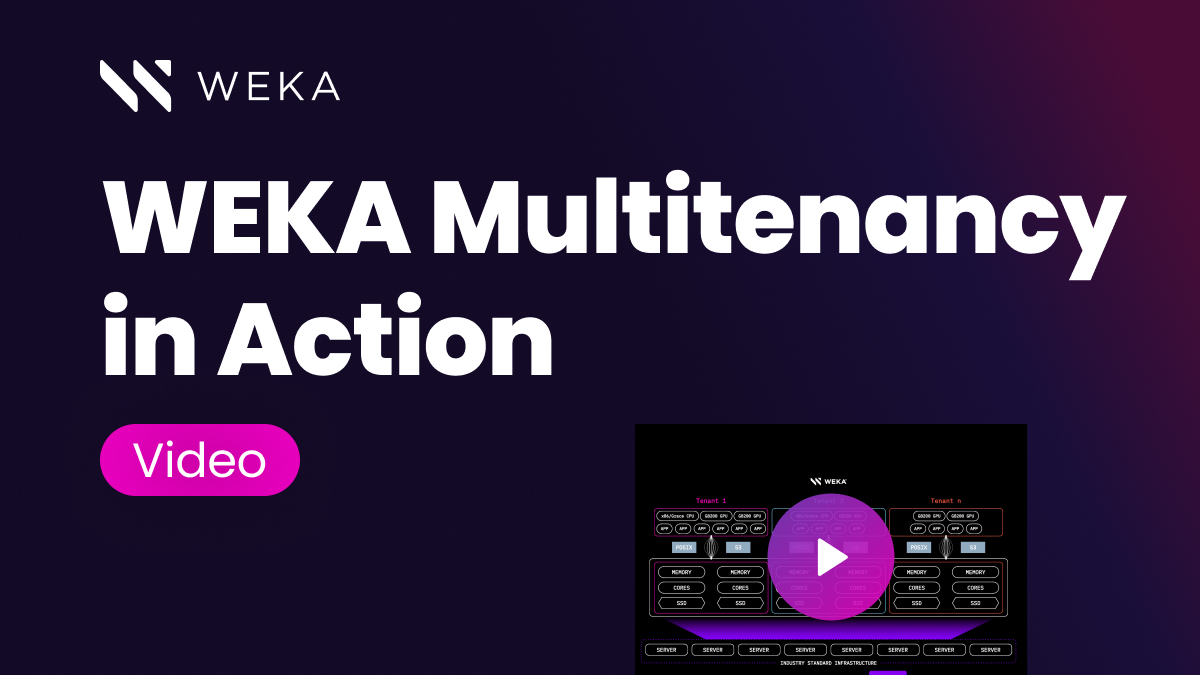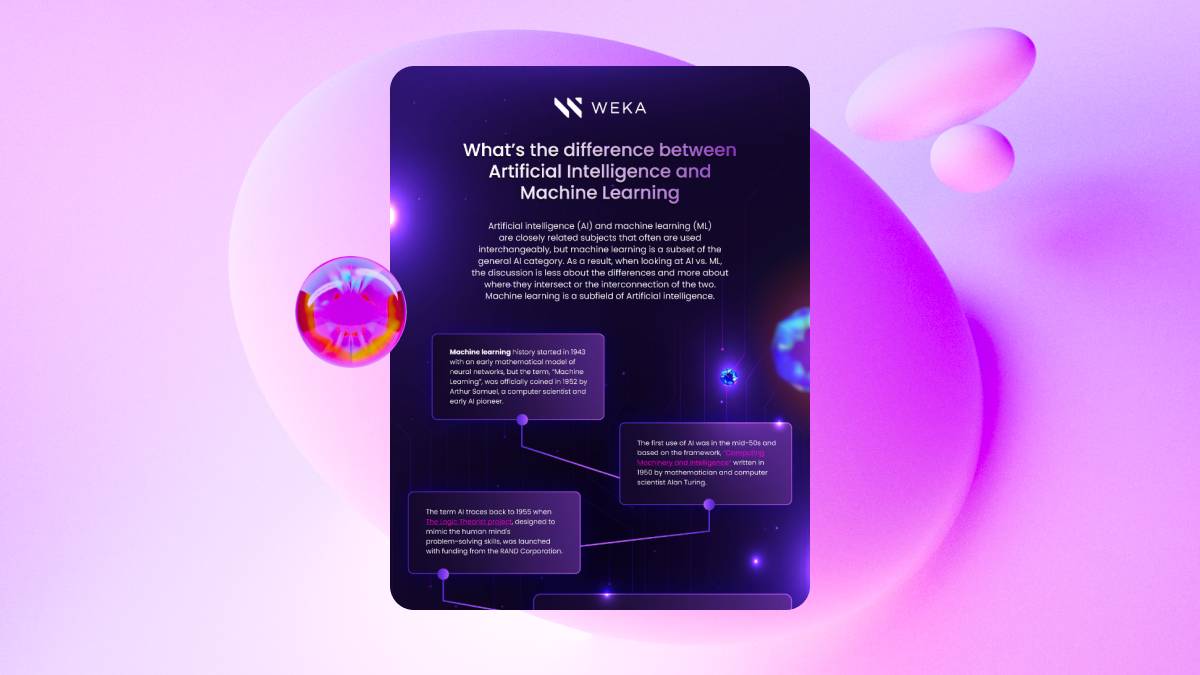AI in Financial Services | How Does It Work?

Were you wondering how AI is used in financial services? We explain how AI is used in financial services and how your organization can maximize its benefits.
How is AI used in financial services? AI is used in financial services to detect fraudulent activity, improve customer services with features such as chatbots, and reduce costs by automating manual transactions.
What Are AI and Machine Learning?
The advent of massive cloud computing platforms and big data analytics has redefined how many industries manage infrastructure, customer services, and business analytics. Operations related to consumer interactions or supply chain logistics are increasingly plugged into these big data platforms, where intelligent systems help operators and users make decisions based on trends and patterns in environmental data.
As these platforms expand, so too does the potential of intelligent systems based on machine learning approaches. Once deemed improbable, if not impossible, modern machine learning has emerged from massive leaps in innovative technological development around cloud computing platforms.
With that in mind, it’s essential to understand the terms and how they are used in business applications:
- Machine Learning: Machine learning algorithms are computer systems that ingest data, find patterns or trends related to specific tasks or processes, and develop strategic decision-making capabilities around these trends. Once one of the most challenging disciplines in computer science and engineering, the combination of terabytes of data and high-performance computing systems has led to learning systems that can power decision-making algorithms in various industries, including financial services.
- Artificial Intelligence: AI is the superset of intelligent capabilities, and machine learning is a component of AI. More broadly, AI refers to machines that can behave “intelligently,” like a human. In modern parlance, this has moved away from the traditional notion that AI behaves identically to humans, but rather that an AI behaves strategically in specific contexts, processes, or environments. AI systems that do so are supported by machine learning algorithms that create the underlying knowledge base for that AI, a sort of brain or intelligence that drives the decision-making of the AI systems.
- Intelligent Systems: Sometimes, the term “intelligent systems” is used in place of AI or machine learning. These terms are used interchangeably. In other cases, “intelligent machines” can refer to autonomous systems that respond to dynamic environments but may not be fully embedded in a machine learning or AI platform.
Instead of having an AI that looks and talks like a human, you may have an AI that can make rapid, dynamic, and accurate decisions in large manufacturing or retail systems to handle product distribution or customer marketing campaigns.
How Does AI Impact Financial Services?
Many financial institutions were already moving to online systems, and the onset of COVID-19 and work-from-home paradigms have only accelerated that shift. With so many users online, service providers have quickly pivoted to cloud services, online account management, and investment and financial management in the cloud on a grander scale.
The inclusion of AI in financial services has been relatively comprehensive and profound in both consumer and business applications.
AI in Consumer Financial Services
On the consumer side, there are several places where AI and machine learning are making a significant impact:
- Business Growth: Banks have to reach out to customers to promote their products and services. While traditional advertising is still an avenue for banks, it’s also critical that they encourage existing customers to consider additional programs, services, and banking products. AI can use customer behavior to suggest relevant products that could help those customers and endear them to the organization.
- Customer Experience: According to a study from PwC, modern bankers are increasingly relying on digital and online banking services for everyday uses. According to the report, 61% of consumers say that they interact weekly with their bank through digital channels. These customers expect to perform more and more banking functions online, which means they will inevitably need digital customer support at the point of contact. AI systems operating chatbots and behavior-informed support will quickly move into customer service niches to help customers where they are.
- Risk Management: Banks provide various services to customers, not just checking and savings accounts. As banks branch into more expansive loan offerings and credit card products, robust AI systems can help them make quick and accurate decisions about who to lend or extend credit to while maintaining risk profiles aligned with their mission and tolerance boundaries.
- Security and Compliance: AI systems are increasingly finding a home in security software based on fraud prevention. AI systems can monitor account behavior to catch potential fraud markers that could slip by human auditors. Likewise, identity management platforms driven by AI-based facial and document recognition are helping banks meet their obligations under anti-money laundering and know your customer regulations.
AI in Business Financial Services
Additionally, more advanced financial services and products targeting businesses and entrepreneurs are also turning to AI-driven platforms to support these services. Some of the more advanced applications of AI in this arena include the following:
- Automated Investment and Trading: Many investment firms from various markets or industries will rely on automated investment platforms that can make decisions much faster than humans can. These systems help monitor the market for rapid changes (and make split-second decisions around these changes), but they also provide advanced and in-depth analytics around investment trends. These analytics can help investors see potential patterns happening in real time to make decisions based on potential future market behaviors.
- Corporate Finance: Corporations have immensely complex financial systems in place, handling millions (or even billions) of dollars in revenue, payroll, taxes, reporting for regulatory compliance, and more. AI systems can help finance executives better manage the organization’s financial footprint. This technical support can include predictive analytics, fraud prevention, and automation around compliance, record keeping, and employee relations.
- Fraud Detection: Companies in retail will often face potential fraud directly in their storefronts, and they will need to work with financial technology solutions powered by AI to help detect and mitigate fraud.
WEKA: High-Powered Computing and Cloud Platforms in Fintech
The hardware used to build these systems is much like other machine learning or AI platforms, tailored for the heavy-duty workloads of daily trading, customer support, and analytics. Fast-access NVMe storage, dedicated hardware, and hybrid cloud systems come together to power some of the most powerful AI systems the world has ever seen.
Consumers and businesses often don’t build their own AIs unless they are fintech manufacturers. Instead, these stakeholders work with banks, service providers, and other software companies to leverage cutting-edge technologies.
But some organizations have to build these systems. These organizations are working diligently in fintech to continually revolutionize how intelligent machines can serve those participating in the finance and banking industry.
These fintech builders are turning to cloud platforms like WEKA. WEKA is purpose-built to support machine-learning and AI platforms with a combination of the following features:
- Streamlined and fast cloud file systems to combine multiple sources into a single high-performance computing system
- Industry-best GPUDirect performance (113 Gbps for a single DGX-2 and 162 Gbps for a single DGX A100)
- In-flight and at-rest encryption for governance, risk, and compliance requirements
- Agile access and management for edge, core, and cloud development
- Scalability up to exabytes of storage across billions of files
Contact us today to learn more about how WEKA can serve as the foundation for your innovative, AI-driven fintech project.





